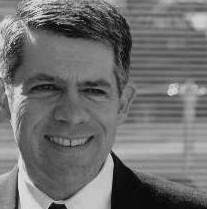 Some years ago I bought a 1st edition of 7 Pillars of Wisdom by T E Lawrence on Portobello Road in London. I am fascinated by the period of time Lawrence traveled in the Middle East and the subsequent years in which he wrote and lobbied for his Middle East policies. Walking through the stalls on Portobello Road, and book shops on Charing Cross Road I am also reminded of many other British authors, thinkers, travelers and world thought leaders through history. For such a relatively small place, it is amazing the amount of fascinating men and women this country has produced. Is it possibly the Oxford and Cambridge connection? Between them they produced 135 Nobel Prize winners, Wittgenstein to Santayana, Newton to Hawkings, Keynes to Friedman, Tenneyson to CS Lewis, Wesley to Shaghi Effendi, Boyles to Berner-Lee; 26 British Prime Ministers and over 30 International leaders from King Abdullah II to Aung San Suu Kyi. But then there are the Churchills and Kiplings that have little or no connection to these schools.
Some years ago I bought a 1st edition of 7 Pillars of Wisdom by T E Lawrence on Portobello Road in London. I am fascinated by the period of time Lawrence traveled in the Middle East and the subsequent years in which he wrote and lobbied for his Middle East policies. Walking through the stalls on Portobello Road, and book shops on Charing Cross Road I am also reminded of many other British authors, thinkers, travelers and world thought leaders through history. For such a relatively small place, it is amazing the amount of fascinating men and women this country has produced. Is it possibly the Oxford and Cambridge connection? Between them they produced 135 Nobel Prize winners, Wittgenstein to Santayana, Newton to Hawkings, Keynes to Friedman, Tenneyson to CS Lewis, Wesley to Shaghi Effendi, Boyles to Berner-Lee; 26 British Prime Ministers and over 30 International leaders from King Abdullah II to Aung San Suu Kyi. But then there are the Churchills and Kiplings that have little or no connection to these schools.It seems, whatever the reasons for the preparation and timing of many great people, destiny formed some sort of partnership with this island nation. At the same time they were doing so many things well (according to metrics of that day), they were also doing some things wrong; so badly that they would eventually lose much of the empire on which the sun never set. But they raised a generation of men and women—many flawed, but with a spark of something few posses.
 A new book Hero by Michael Korda provides a fresh look at T E Lawrence and indirectly the time and environment of this era of British hegemony. Additionally, a map of the Middle East that belonged to Lawrence has been put on exhibition at the Imperial War Museum in London. It was drafted by him and presented to Britain's War Cabinet in November 1918. The map provides an alternative to present-day borders in the region, apparently partly designed with the intention to marginalise the post-war role of France in the region by limiting its direct colonial control to today's Lebanon. It includes a separate state for the Armenians, a separate state of Palestine, and groups the people of present-day Syria, Jordan and parts of Saudi Arabia in another state, based on tribal patterns and commercial routes. Korda’s book is one to add to anyone’s library that is interested in this time period, in Lawrence, or the Middle East. As the title suggests, this is also a book for those who study or are searching for leaders and heroes. This is a popular pastime, as Francois Keraudy, Sorbonne Professor and French author (and Oxford Graduate) of a recent Churchill biography notes,
A new book Hero by Michael Korda provides a fresh look at T E Lawrence and indirectly the time and environment of this era of British hegemony. Additionally, a map of the Middle East that belonged to Lawrence has been put on exhibition at the Imperial War Museum in London. It was drafted by him and presented to Britain's War Cabinet in November 1918. The map provides an alternative to present-day borders in the region, apparently partly designed with the intention to marginalise the post-war role of France in the region by limiting its direct colonial control to today's Lebanon. It includes a separate state for the Armenians, a separate state of Palestine, and groups the people of present-day Syria, Jordan and parts of Saudi Arabia in another state, based on tribal patterns and commercial routes. Korda’s book is one to add to anyone’s library that is interested in this time period, in Lawrence, or the Middle East. As the title suggests, this is also a book for those who study or are searching for leaders and heroes. This is a popular pastime, as Francois Keraudy, Sorbonne Professor and French author (and Oxford Graduate) of a recent Churchill biography notes, “Nostalgia for great leaders when there seem to be so many small ones around.”


